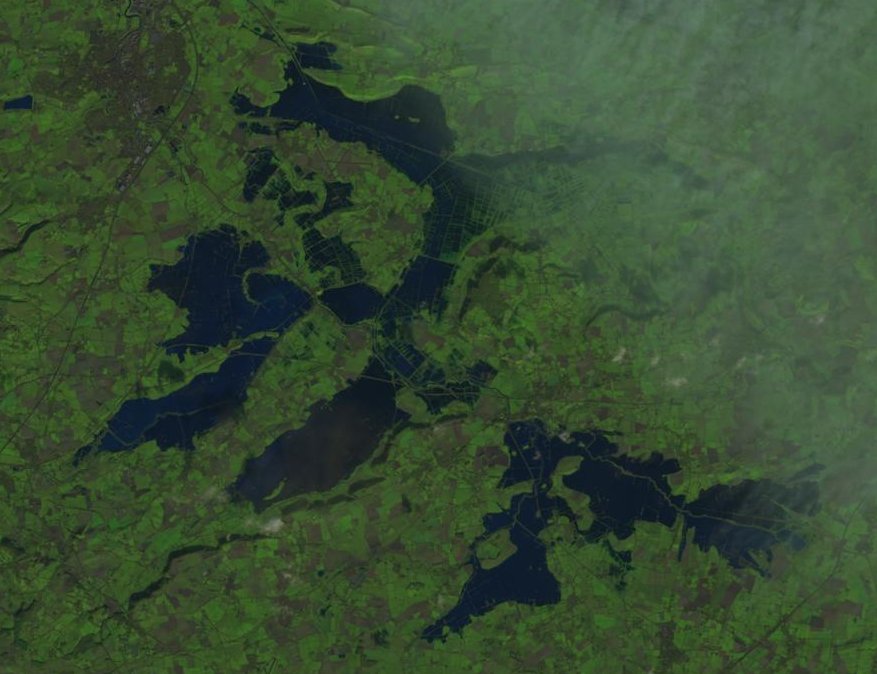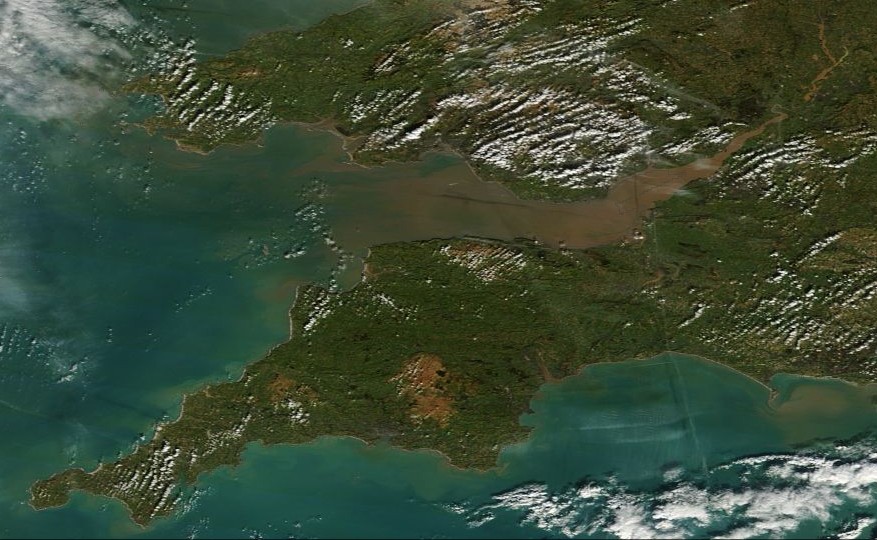February 27, 2014
The Weather Report from Soggy South West England
The mass media have (for a change!) recently been full of reports about floods in South West England (amongst other places!). Here we offer our own perspective on recent events, together with a few additional bits of information that don't seem to have been widely reported as yet.
First of all here's a (slightly cloudy) view of the Somerset Levels taken from on high by the Landsat 8 satellite on January 23rd 2014:
If you're familiar with the West Country you might be able to make out the town of Bridgwater at the top left, with the M5 motorway heading past it in our direction. East of that you can see the main railway line from Exeter to Bristol gingerly making its way across one of the big blue bits.
Secondly, here's a view of the South West's soil being washed out to sea on February 16th 2014, courtesy of NASA Worldview and inspired by George Monbiot's article in the Guardian entitled "How we ended up paying farmers to flood our homes":
As George puts it:
It has the force of a parable. Along the road from High Ham to Burrowbridge, which skirts Lake Paterson (formerly known as the Somerset Levels), you can see field after field of harvested maize. In some places the crop lines run straight down the hill and into the water. When it rains, the water and soil flash off into the lake. Seldom are cause and effect so visible.
Last, but not necessarily least, here's Network Rail's time lapse video of their attempts to repair the Great Western main line from Plymouth and Penzance to the rest of once Great Britain, which was washed away at Dawlish by the storm of February 4/5:
At around 18 secs you can see the impact of the next big storm that arrived on February 14/15. The current estimate for the trains to start running again is "Mid April". According to the leader of Plymouth City Council "the rail disruption was costing the city £5 million a day". According to Robin Gisby, Managing Director of Network Operations for Network Rail:
We'll worry about adding up all the numbers later on.
Meanwhile over in the South East of England David Cameron has apparently recently stated that:
Man-made climate change is one of the greatest threats to the UK and the rest of the world.
When are you going to start putting our money where your mouth is David?
Filed under Disasters by


Comments on The Weather Report from Soggy South West England »
The weather has improved a bit recently, and Network Rail now say that:
A new video, hot off the presses at the BBC:
http://www.bbc.co.uk/news/uk-26511229
Can dangerous climate change be avoided? | Ideas from Brussels and York | Brussels Blog @ 9:57 am
[…] also with recent evidence about the UK Government's progress in addressing their responsibilities for the built environment and a new low carbon infrastructure […]
Network Rail have announced today that:
The trains to Cornwall may be running once again, but it seems there is still more work to be done at Dawlish:
Network Rail have also released a new time lapse video covering the period from February 10th to April 1st, which has noew replaced the original one in the post above.